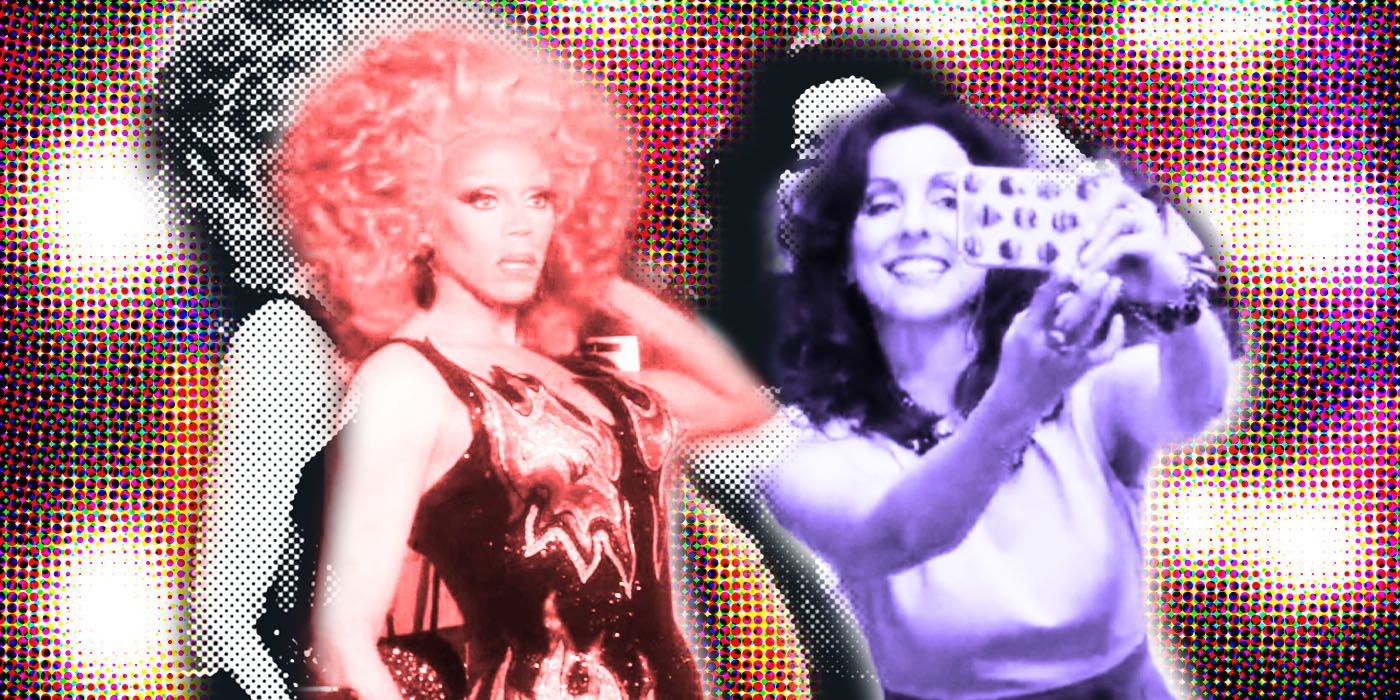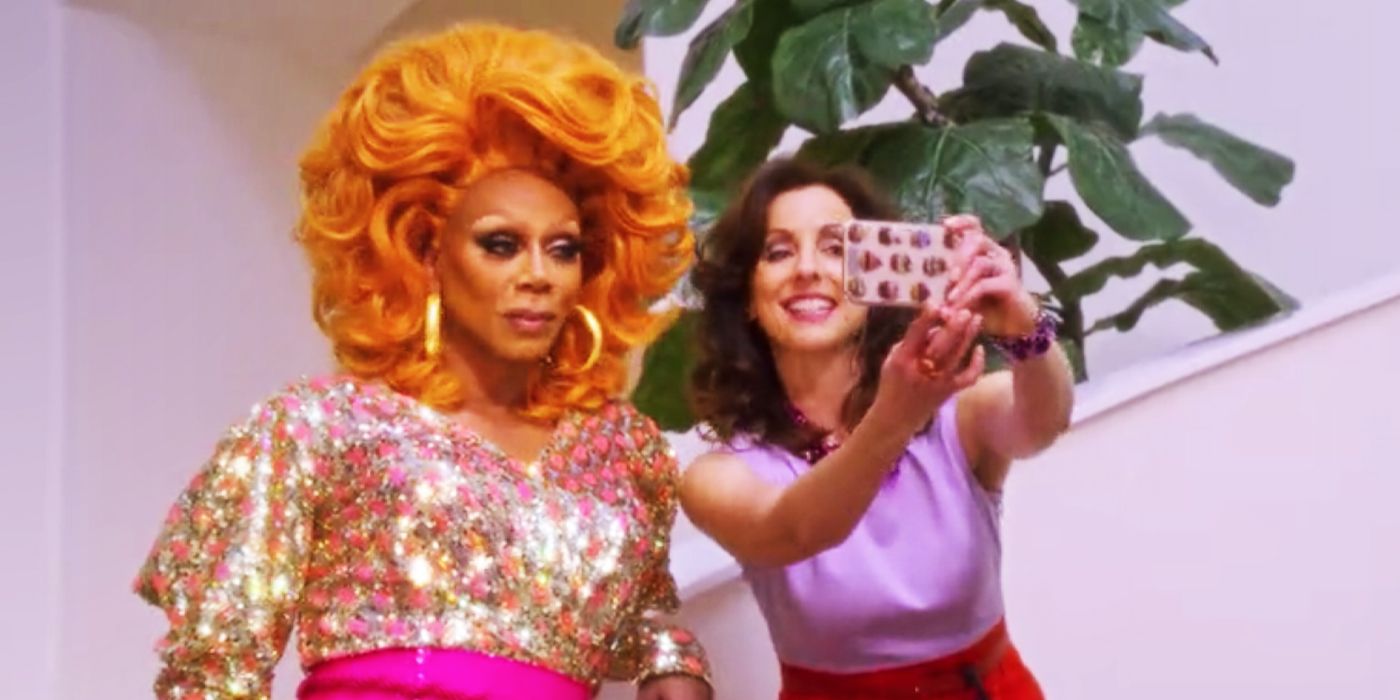
AJ and the Queen is not afraid to poke fun at its audience, and affectionately mocks various aspects of popular culture. Season 1 of the Netflix Original TV series repeatedly takes aim at one target in particular: Instagram culture. AJ and the Queen follows the adventures of drag queen Ruby Red (Robert when out of drag) and her young travel companion AJ; along the way, the duo encounter a variety of colorful characters, including a few individuals who are perhaps a little too preoccupied with their social media presence.
AJ and the Queen was created by RuPaul Charles of RuPaul's Drag Race fame. RuPaul has been an icon in the LGBTQ+ community for decades, and his show Drag Race — which originally aired on the LGBT-themed channel Logo TV — helped bring the drag queen subculture into the mainstream. While the Netflix show largely celebrates this newfound acceptance, the show's creator and star RuPaul also has a bit of fun at the expense of the show's mainstream audience, mocking those who romanticize a culture they only ever see through the filter of a screen.
AJ and the Queen was co-created by Michael Patrick King, an openly-gay writer and director best known for his work on the HBO hit show Sex and the City. In both projects, the worlds of fashionable women and their fabulous gay friends collide; in the Netflix series, however, the satire is more biting. Social media — Instagram in particular — is repeatedly referenced as a powerful tool that can make or break a person's reputation in today's increasingly-digital world, and a fashionable "gay presence" is a key part of that.

In AJ and the Queen season 1, episode 8, "Baton Rouge," Instagram becomes the butt of a running gag that sees strangers insisting that the increasingly-annoyed Robert provide a specialized assessment of someone based on their appearance on the app. Robert is asked to provide feedback on someone's drag persona, a little girl who's struggling to succeed in the beauty pageant circuit, and the "African-American" boyfriend of a concerned mother's daughter. The joke is, of course, that a cursory glance at someone's profile does not actually provide enough information for anyone to make any sort of useful judgement — with the exception of the boyfriend, to whose picture Robert replies "No ma-am, uh-uh. Send him packing girl."
In the first two instances, however, Robert points out that the act of being a drag queen or in a beauty pageant is more important than how one looks in the role. The theme is further pointed in the following episode of AJ and the Queen, season 1, episode 9, "Fort Worth." The episode's plot centers on Robert and AJ visiting a childhood friend of Robert's, "BBB," who moved to Texas and married rich. One of the episode's primary themes is being true to oneself; numerous characters throughout the episode either lie to themselves and those around them, or exhibit patently fake and shallow behaviour — which Robert equates to a sort of toxic drag.
Robert is in denial about his feelings towards AJ (he has developed paternal feelings towards AJ and doesn't want to say goodbye), and his friend BBB is literally performing to meet the expectations for a rich Texas socialite, Texas accent and all. This is tied to the shallow nature of social media when Robert meets BBB's friends, who excitedly identify him as her "famous Facebook drag queen" friend.
In what is a painfully embarrassing scene to witness, the near-penniless Robert (in his drag persona Ruby Red) finds himself in the mortifying position of performing "livingroom drag" for a group of rich, unimpressed, socialites. She becomes the kind of exotic subject of fascination that feels uncomfortably oppressive given the class dynamic at play (this point is driven home when a snooty guest jokes that as the hired entertainment, Ruby shouldn't feel above fetching him a drink). Ruby is even instructed by the party planner Tommy to help the guests improve their "gay social media presence" by taking selfies with them.
AJ and the Queen's satire is light-hearted however, and no real harm comes to Robert apart from some mild annoyance and embarrassment. The show reminds viewers that a social media presence is no substitute for lived experience — but also, that social media has become an inescapable part of life.
from ScreenRant - Feed https://ift.tt/30fcCYG

0 Comments